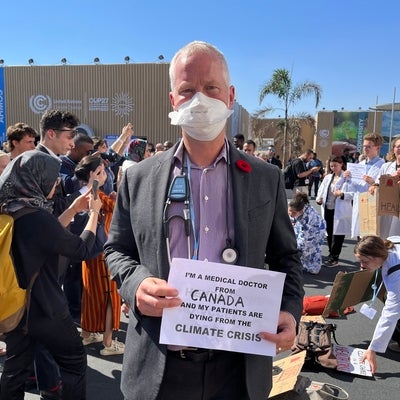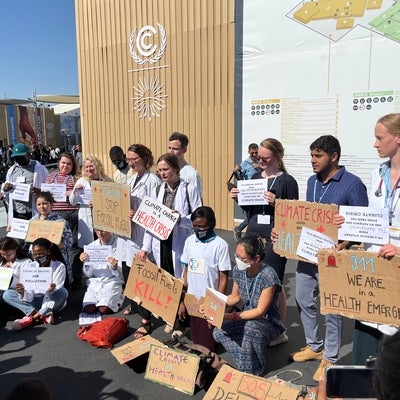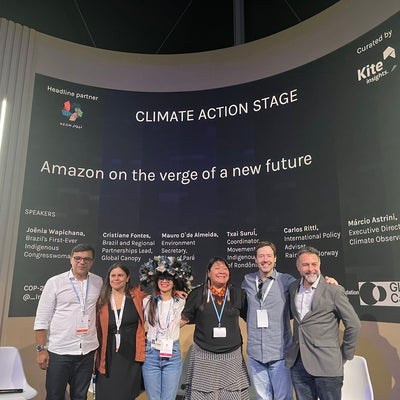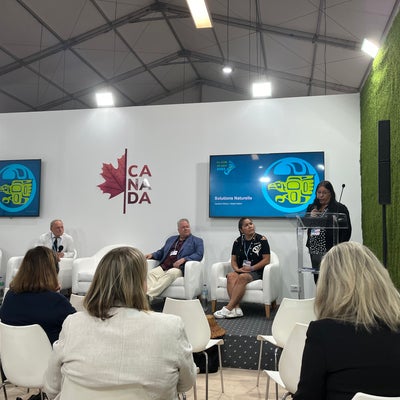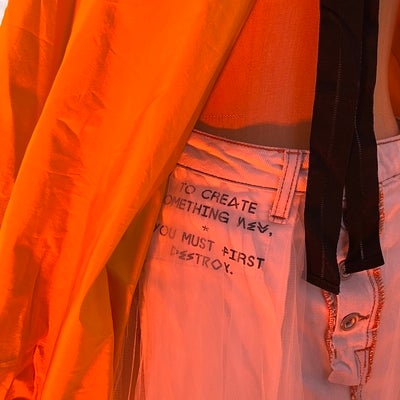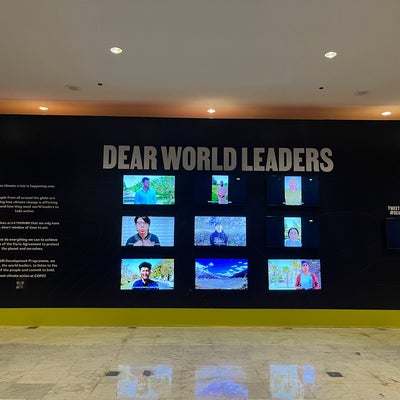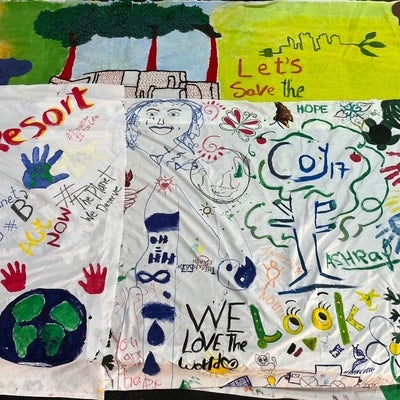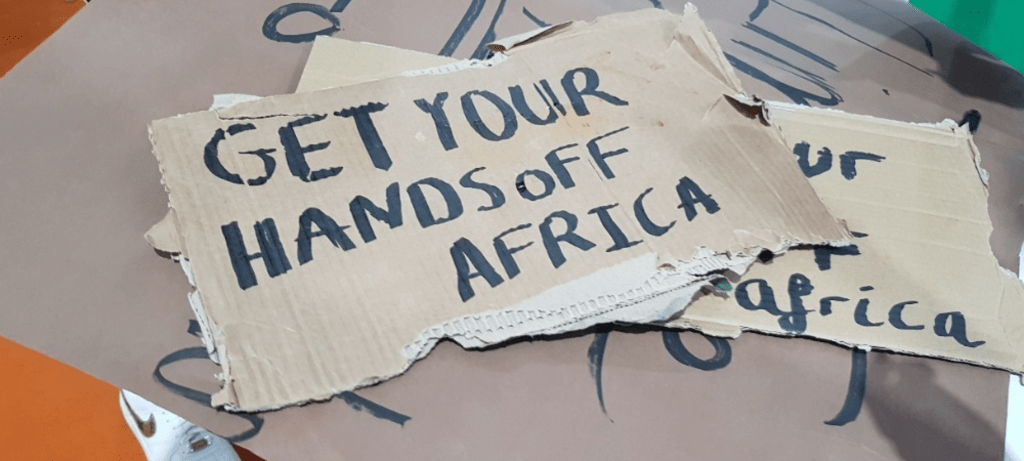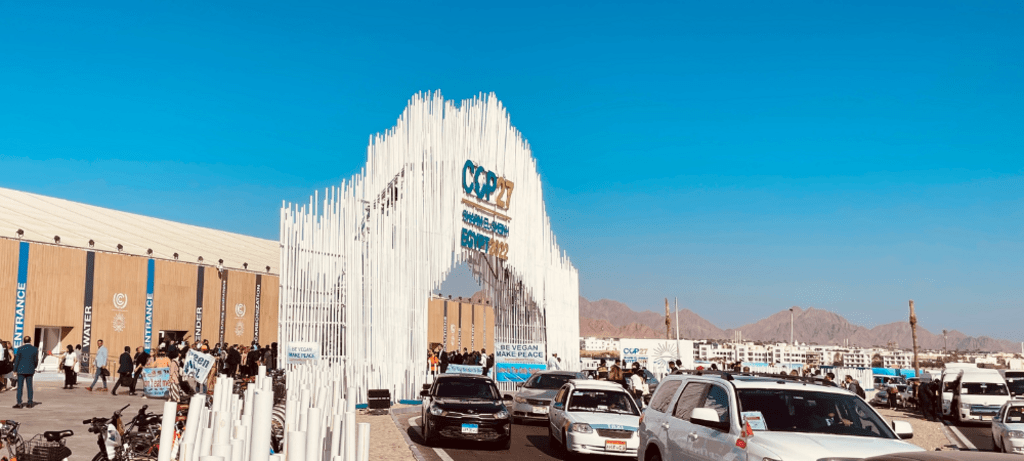Conference COP-versations

Alexandra Ho is a Master of Climate Change student focusing on the relationships between climate change communications and behavioural choice-making as well as the impacts of climate change on mental health and psychological wellbeing. She attended the 27th Session of the Conference of the Parties (COP27) in Egypt during fall 2022. This is her reflection from participating as a student delegate.
Estimated reading time: 5:30
When I first learned of the incredible honour I would have to attend COP27 as member of the University of Waterloo delegation via the Waterloo Climate Institute, I knew I wanted to ground my experience in exploring climate change conversations. To hear from the activists, entrepreneurs, and leaders from around the world working towards climate action success. To understand what climate conversations and concerns are occurring beyond those I might typically encounter at home here in Canada. I immediately knew it was these conversations – the topics, the dynamics, the voices being represented (and perhaps more importantly, of those being omitted from the conversation) that would take the center stage of my conference agenda. I firmly believe that our discussion of climate change, and the translation of the conversations held within the walls of the conference into the broader public, is foundational in facilitating the actionable translation of knowledge that will empower public pressure to encourage systematic change. As Dr. Katherine Hayhoe says, the best thing we can do to address climate change is to talk about it. The geopolitical climate of this year’s conference, however, proved to shift the dynamics of what I had envisioned for myself in an exploration of the voices of COP27.
On the ground, conversations of voice and representation in climate change conversations were front and center at this year’s conference. Beyond calls for recognition of the limitations on who’s voices would and could attend COP27, whether by force or by choice, calls for a shift in conversation dynamics rang loud and clear, asserting prioritizing the voices of people most impacted by climate change. Indigenous peoples, the voices of those in the Global South, the voices of women, and of those in other intentionally exploited communities disproportionately impacted by the effects of the climate crisis must sit at the heart of discussion. These communities must be given the room to speak not only as storytellers, but as leaders, land defenders, healers, and solution-drivers.
In a panel conversation at the Climate Action Innovation Zone on protection of the Amazon forest and its people, Indigenous activist Txai Suruí emphasised the necessity to acknowledge the solutions and traditional knowledge that Indigenous peoples bring to climate conversations. In a panel conversation at the New York Times Climate Forward, Ugandan climate activist Hilda Flavia Nakabuy highlighted the discrepancy in the amplification of voices of those in the Global South versus those in the Global North.
Voices from the Global South should be given space equally like the way the voices of the Global North are given space. I think there is a gap between these voices because if a voice from the Global South wants to get attention and call for action, it has to be shared by activists in the Global North, and no one can tell your story better than you do. We face the effects, but we find a gap in sharing our voices. If we need to be heard, we need to share our voices with activists from the Global North, which is not the case because they cannot tell our stories better than we do.
The Global North needs to do everything in its capacity to finally hear these voices speak with the autonomy, authority, and independence that they so warrant. It is imperative that these voices historically repressed by the same colonialist, patriarchal systems which have both facilitated (and continue to perpetuate) the climate crisis be moved to the forefront of climate conversations as we move forward from COP27. The progression forward from what has been dubbed the ‘Implementation COP’ and the ‘Africa COP’ must drive systematic change that fosters space for diversity and inclusivity in leadership into the future.
This year’s COP27 slogan reads “Together for Implementation”. And together, beyond the secluded walls of the negotiation rooms, attendees of the conference are ensuring that the pressure for climate action is on. The conversations and calls to action by activists in attendance at COP27 (and beyond) center heavily around accountability. This year, we have seen huge calls for climate financing and a focus on loss and damage (#PayUp4LossAndDamage). We have also seen huge momentum from youth voices who are demanding action and to be given a seat at the table. This year marked the introduction of the first ever COP27 Children & Youth Pavilion, as well as the first ever Youth Envoy, Omnia el Omrani, highlighting the power, strength, and legitimacy of youth leadership in climate discussions. Calls for a further prioritization of gender considerations into the climate agenda were consistent, particularly in recognition of the role climate change plays in increasing gender-based violence against women and girls.
In a space filled with so much action, complexity, emotion, and at often times, collective frustration with stagnancy in the high-level climate agenda, I also feel it is integral to highlight and acknowledge the solidarity, optimism, creativity, hopefulness, love, and joy that makes its way into COP27. The inspiration, connection, and experiences of sisterhood and solidarity that I encountered amongst delegates has left me endlessly inspired and excited about the collective working tirelessly towards the creation of a better future. It is a reminder of the humanity and connection centered in the work we do.
Loving is the hardest thing in the world. At this moment in time, at the cusp of so many species on the brink of extinction, we need love more than ever. We are taught time and time again that we need to learn the technical and political language. The language of colonialism and patriarchy. But it is the language of Mother Earth, love and compassion that will save Mother Earth. We need to stop thinking we are the voice of nature, we just need to listen to the voice of Mother Earth.
Discussions about climate change – its contributors, its impacts, its effects – cannot be held in isolation. At its core, climate change is a social justice issue. It’s a challenge of achieving equity, of upholding human rights. As we move forward from COP27 with openness, inclusivity, intersectionality, and equity considerations at the center of our conversations, we also need to reframe the way we talk about climate change on the whole. There is no climate justice without human rights.
In reflection, here are some of the voices I had the opportunity to encounter in my #COP-versations. It is also critical to recognize the multitude of voices and perspectives of those who were not present this year, whether by choice or by force, that are not captured in the photos below.
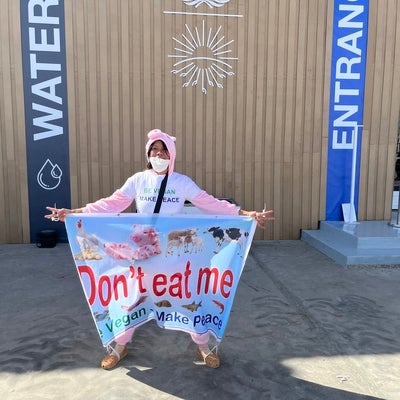
A protestor stands outside of the Blue Zone main entrance. The group, encouraging veganism, was present at the entrance for much of the first week. Notably, restrictions on protest demonstrations at this year’s conference meant that the typical collective of activists and protestors who gather each year were not present around the venue.
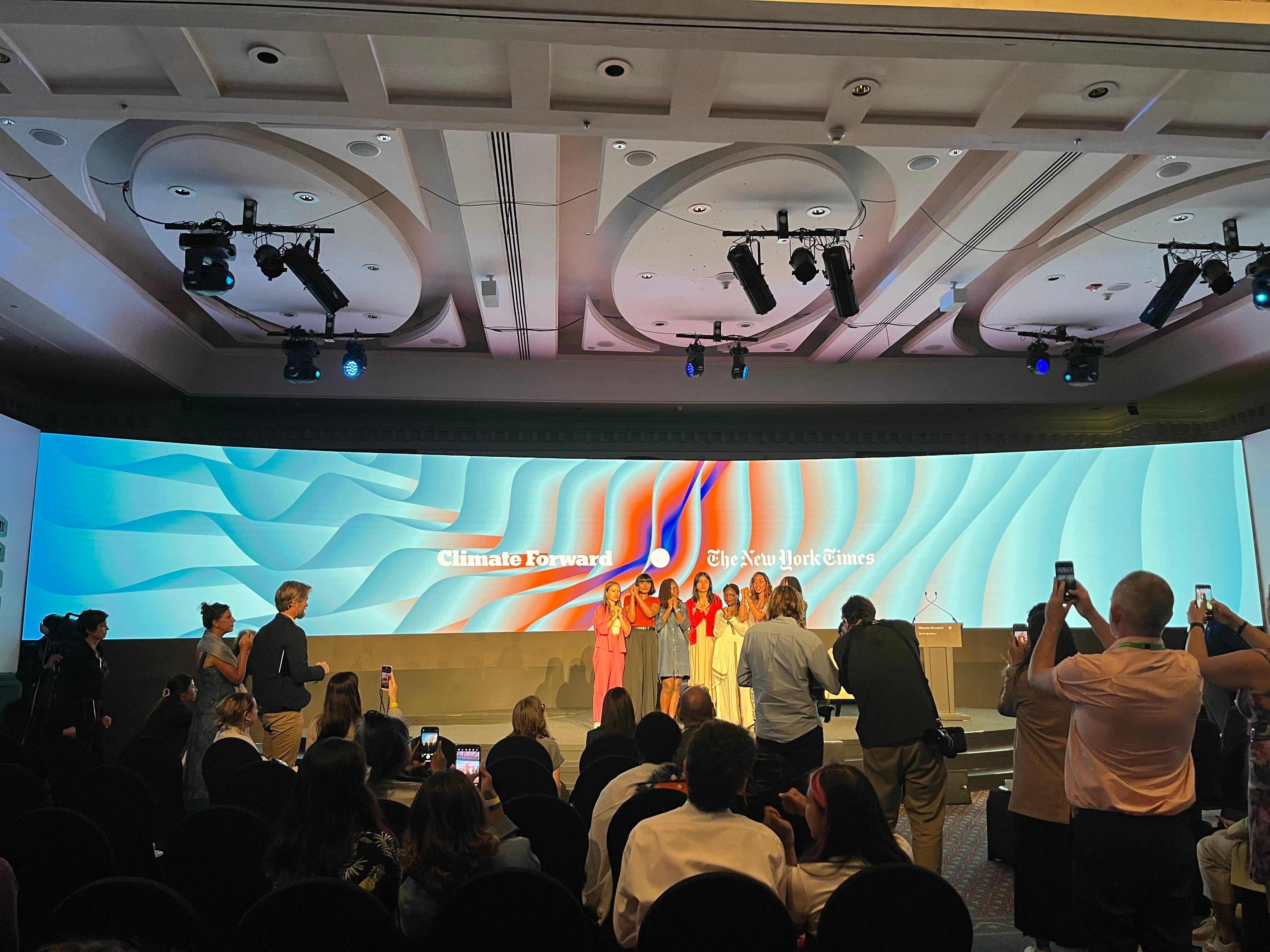
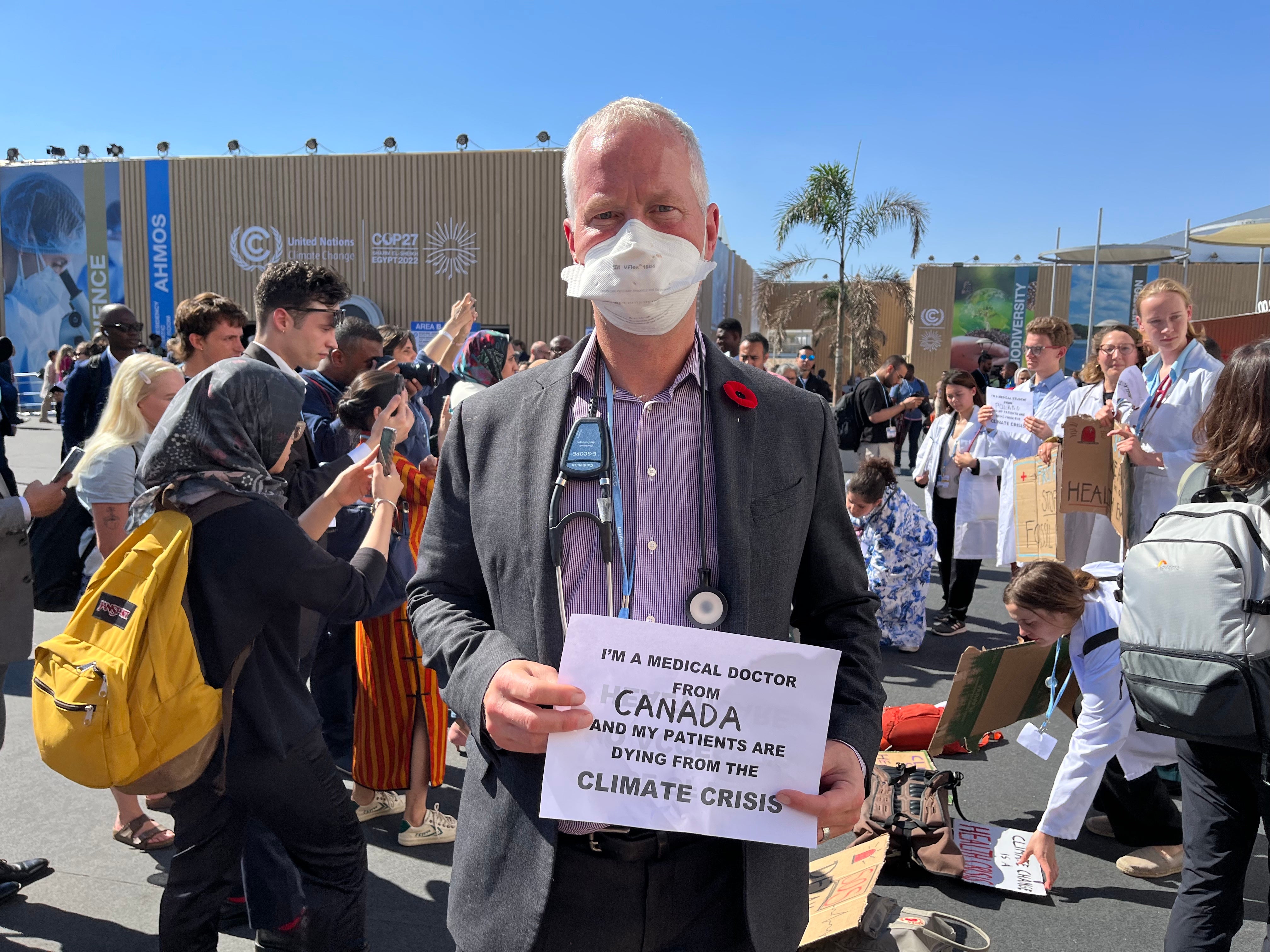
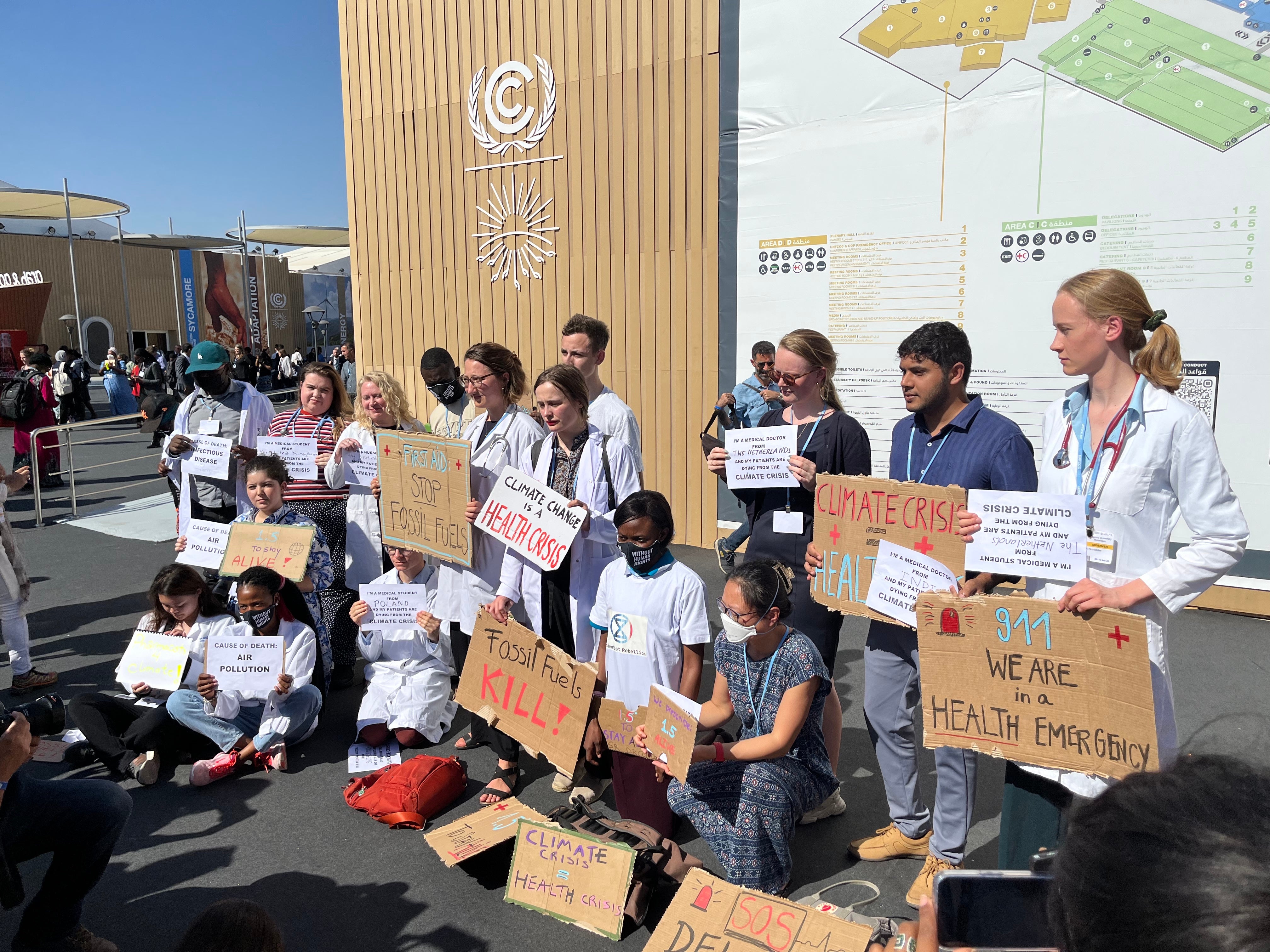
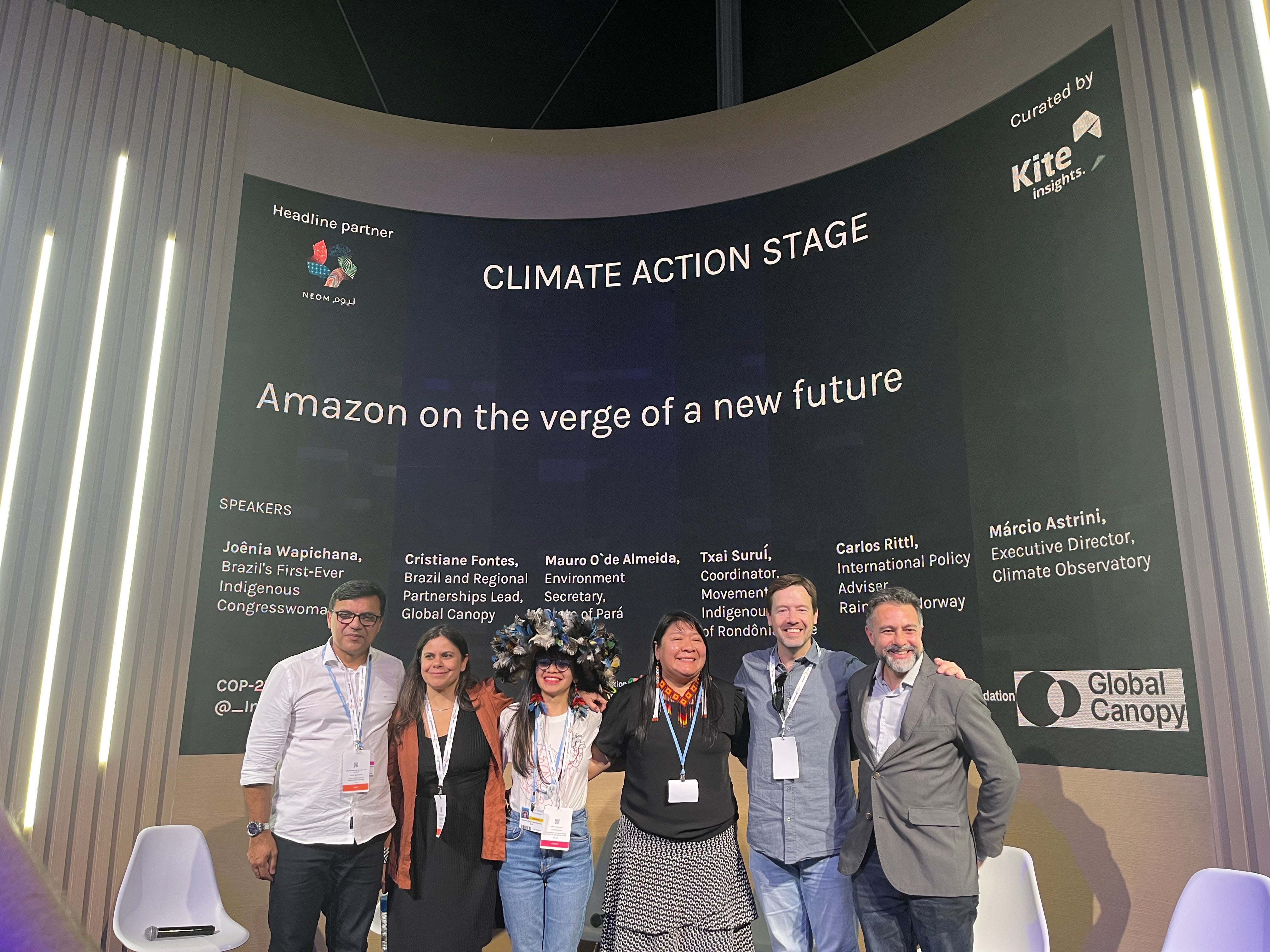
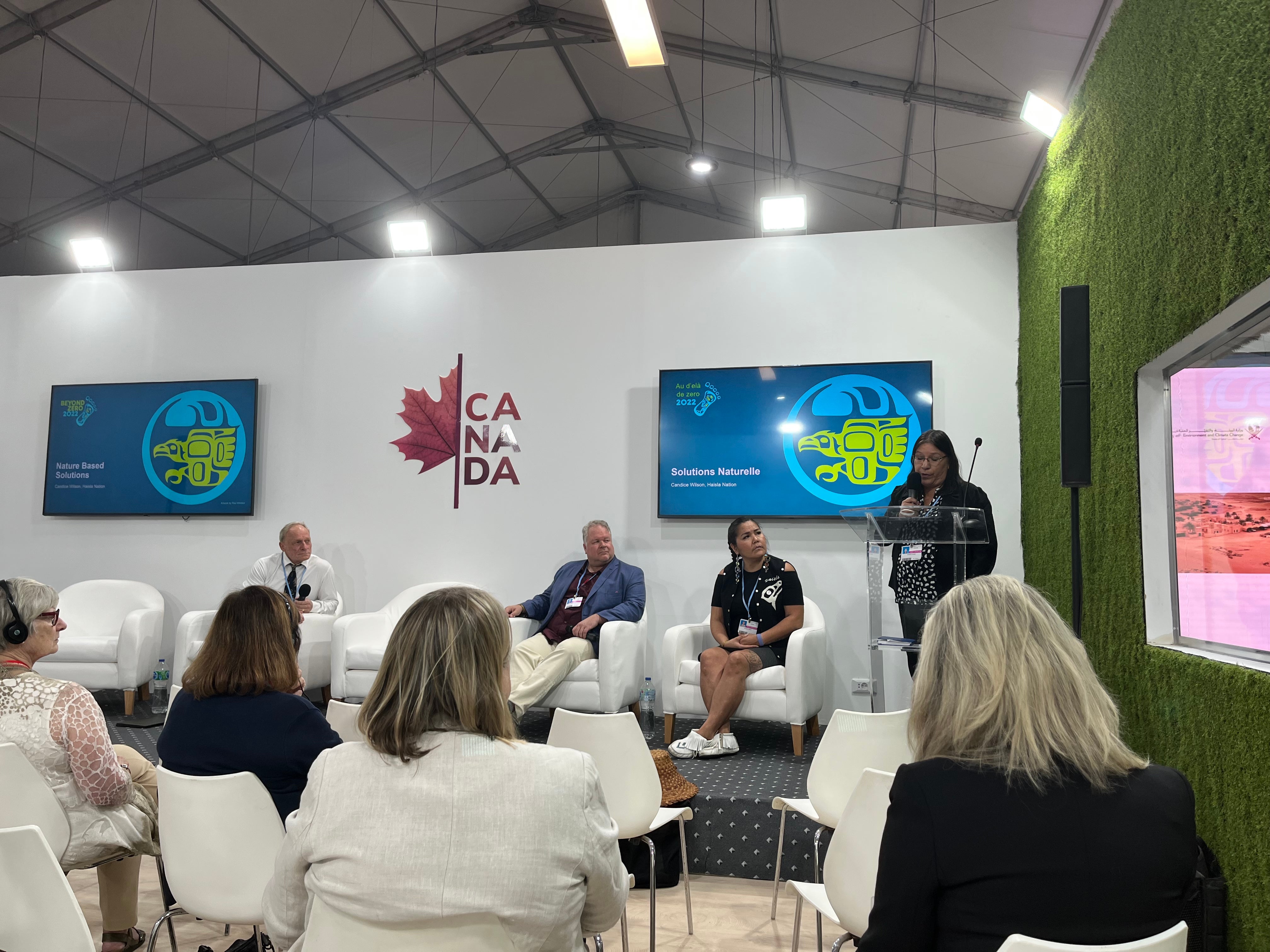
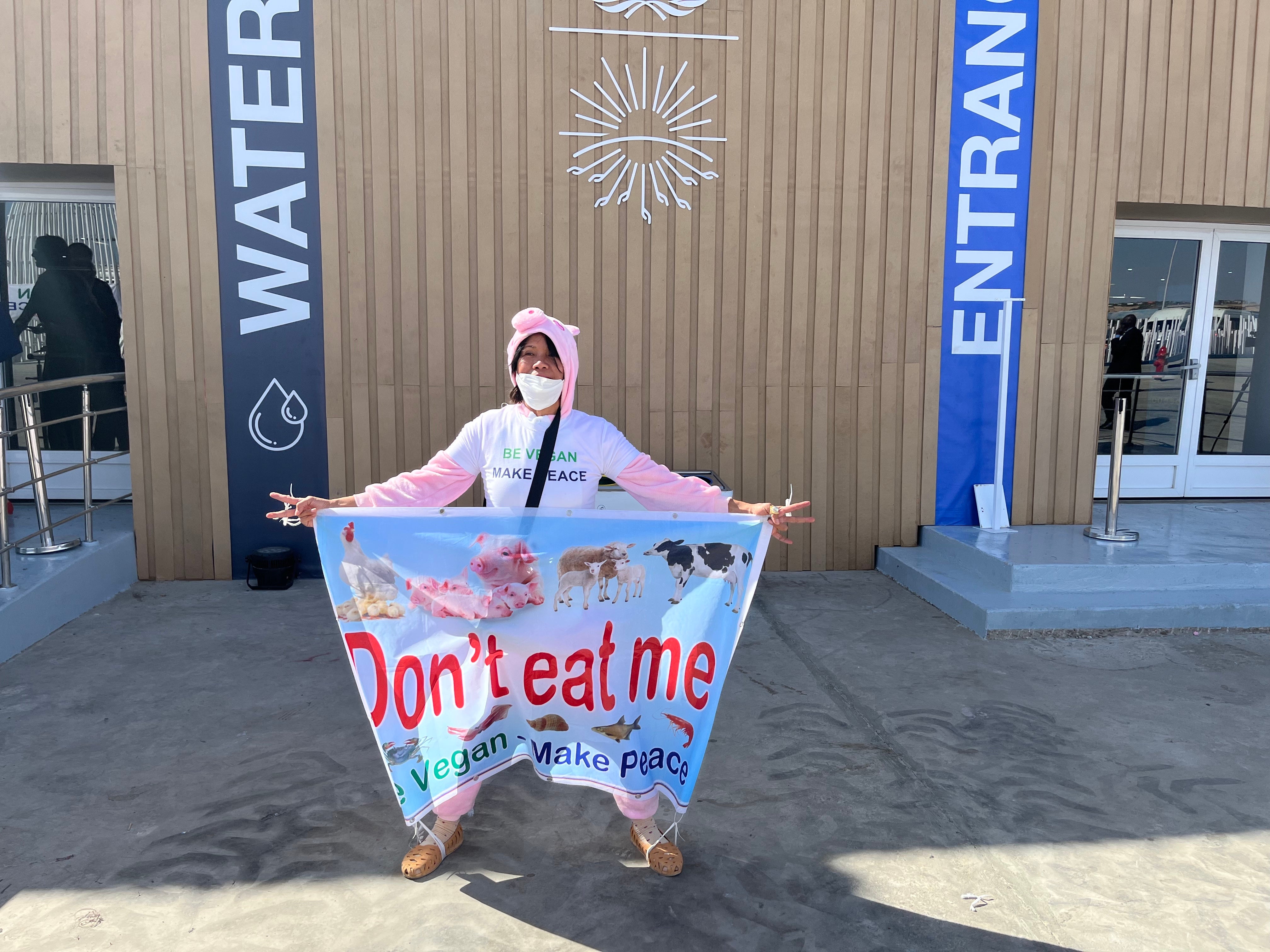

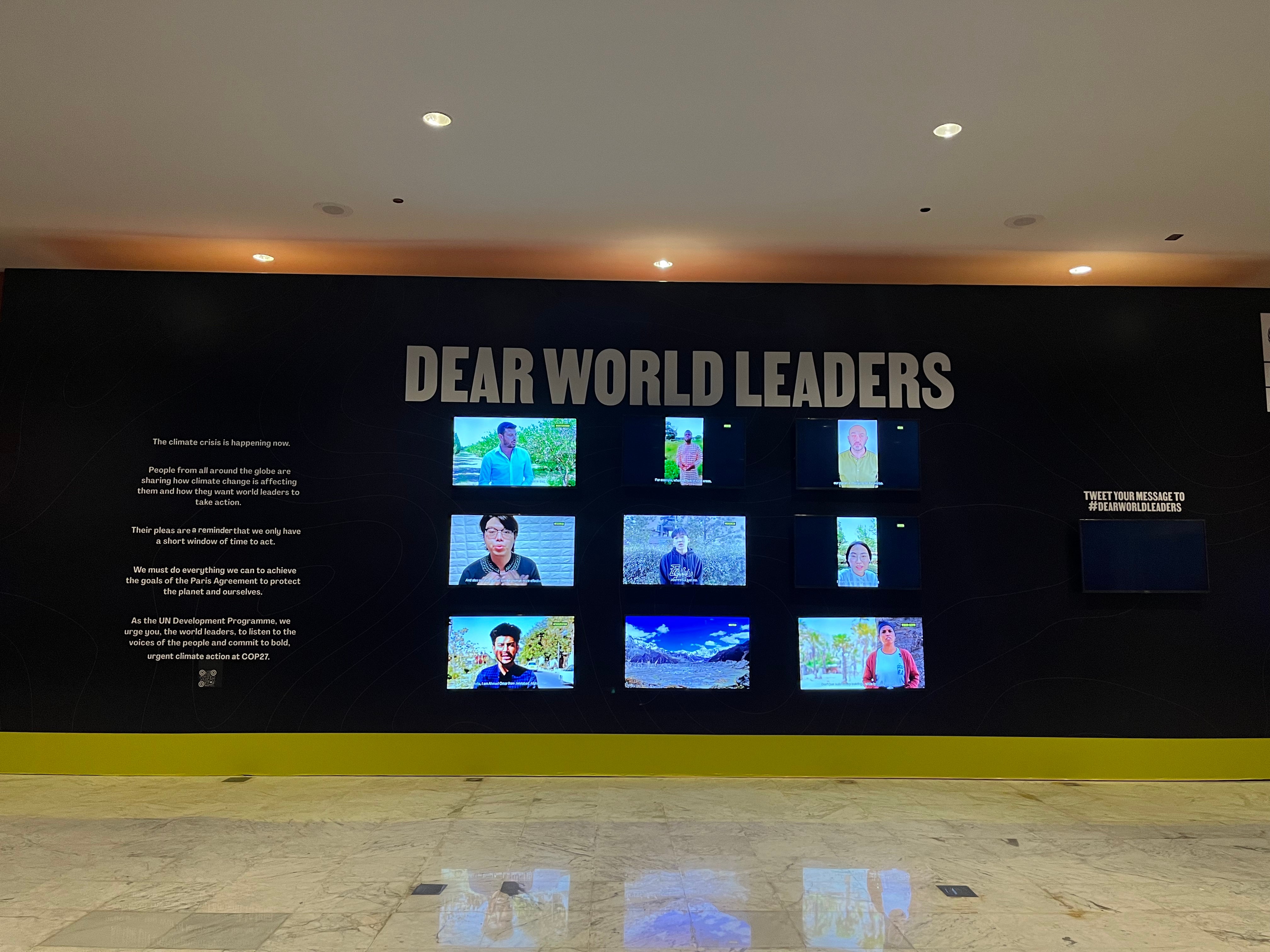

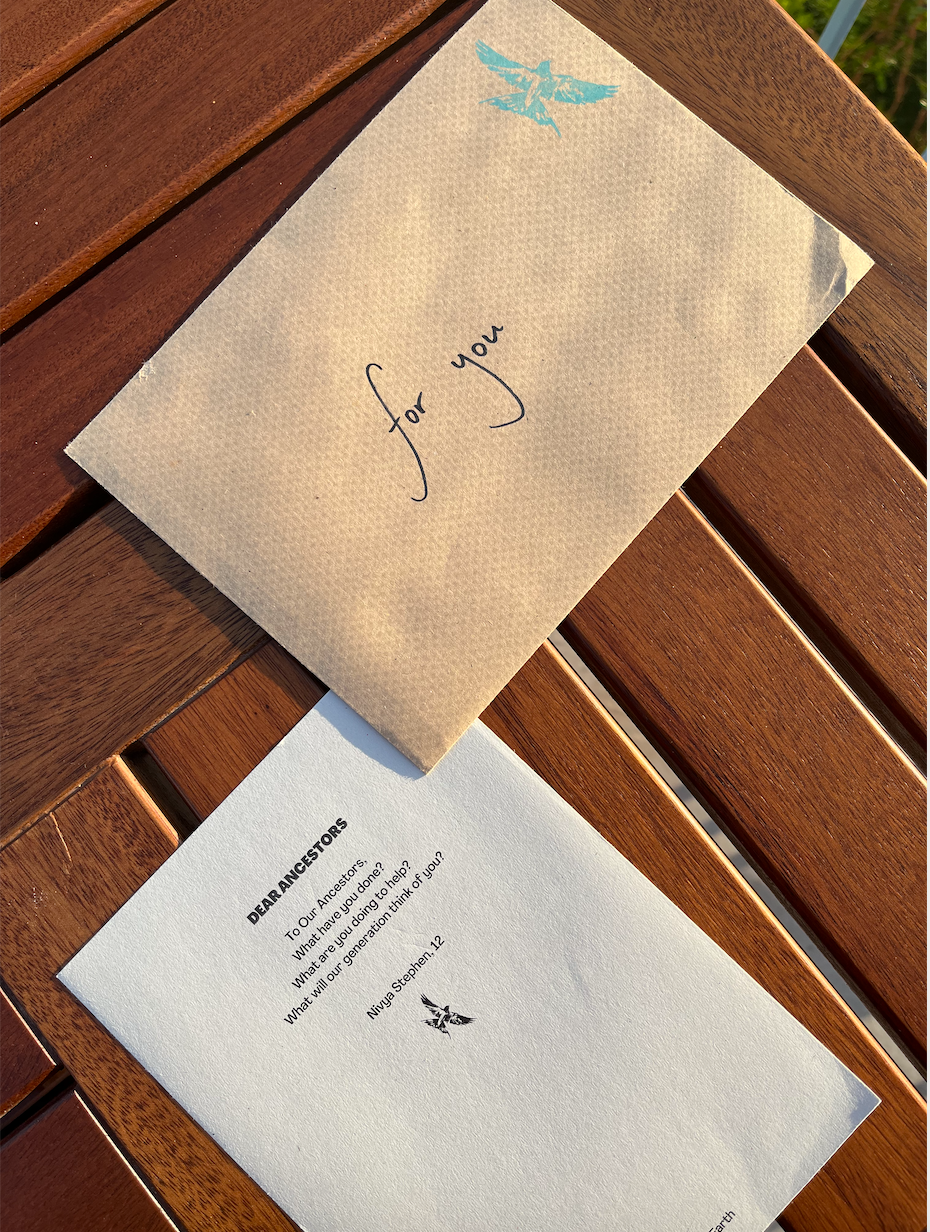
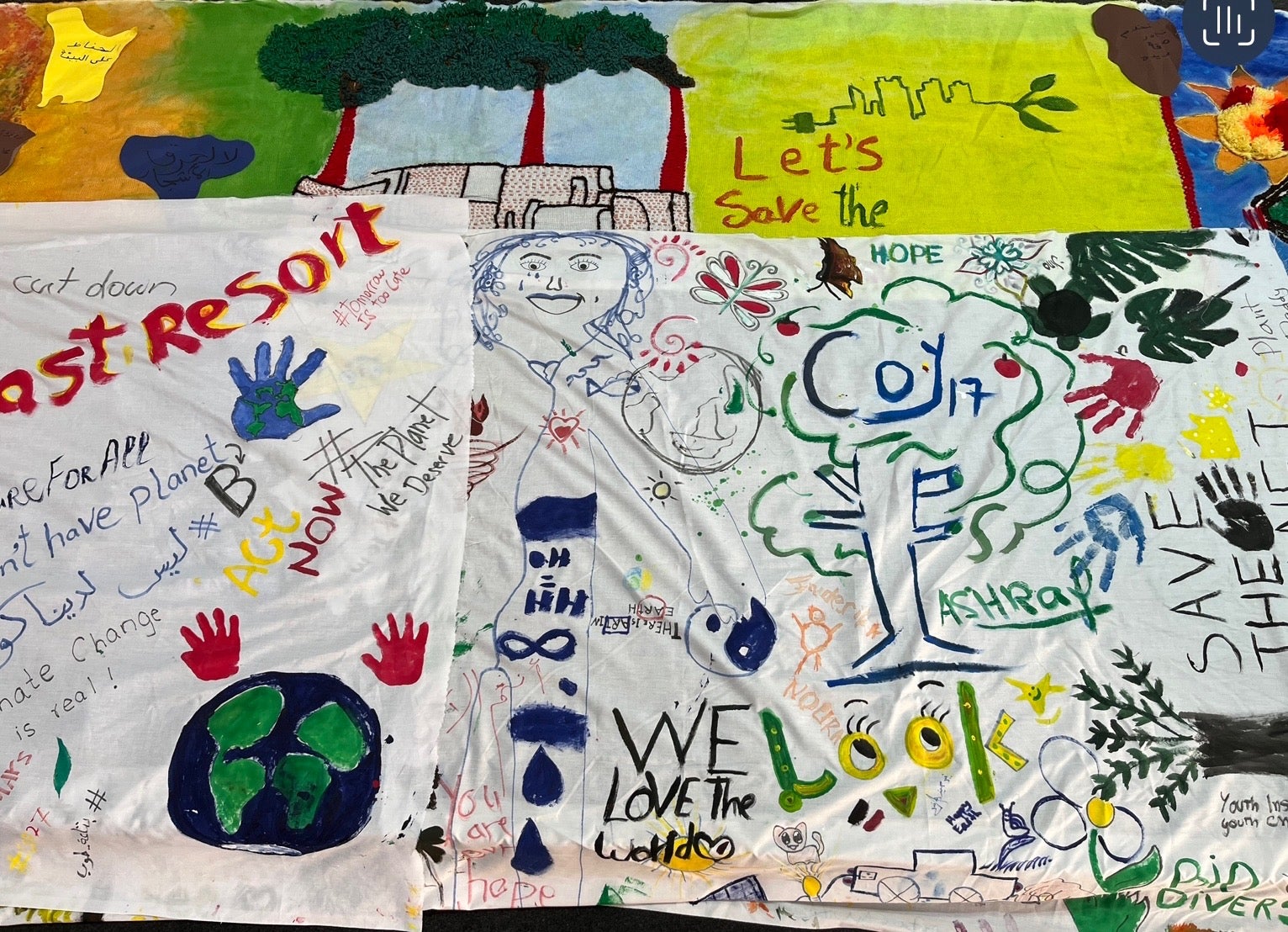
Contact us for media inquiries to learn more about this or other climate change related stories.

